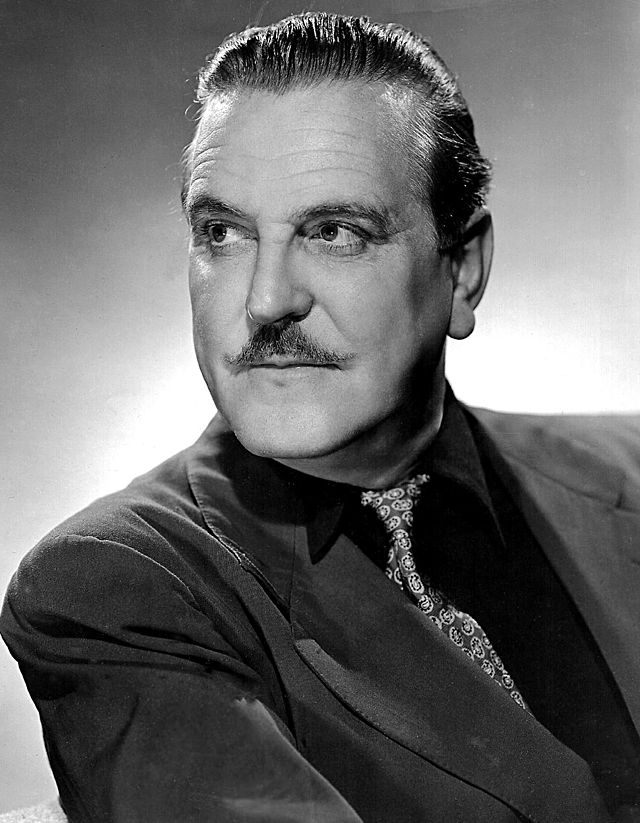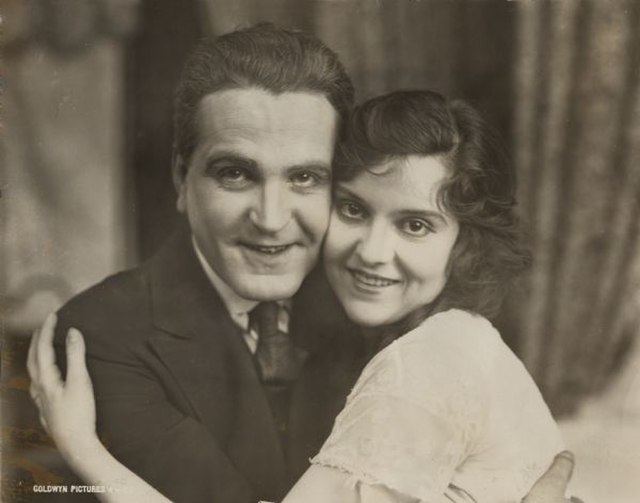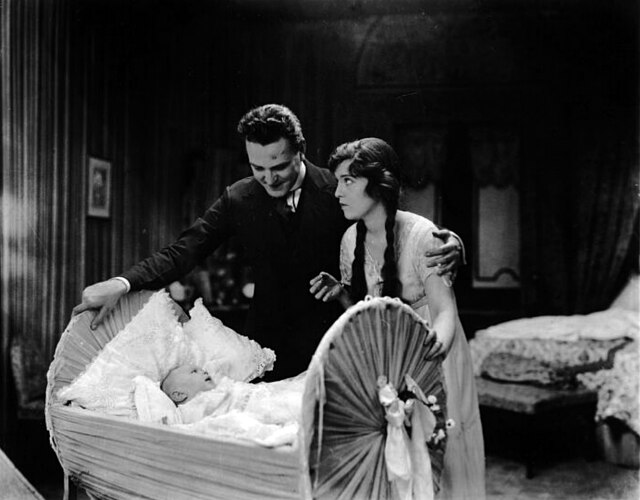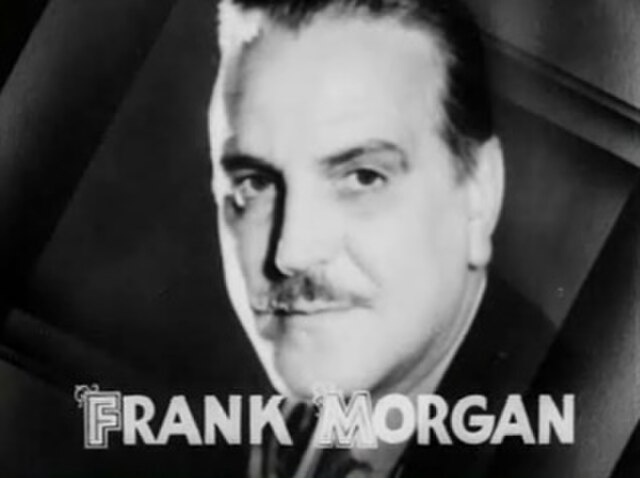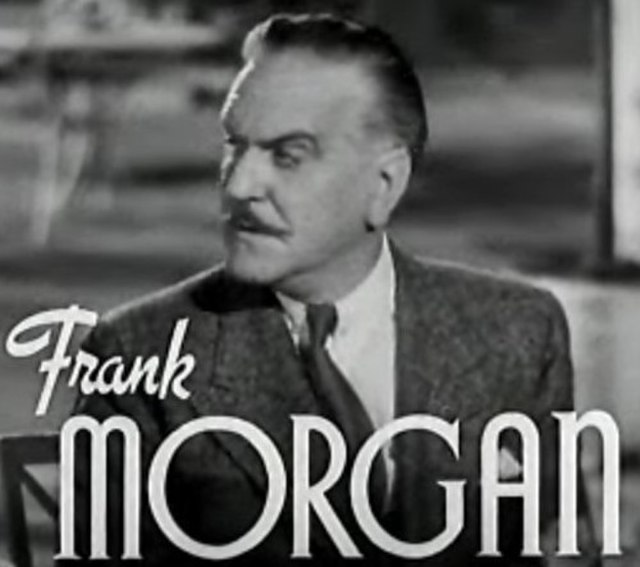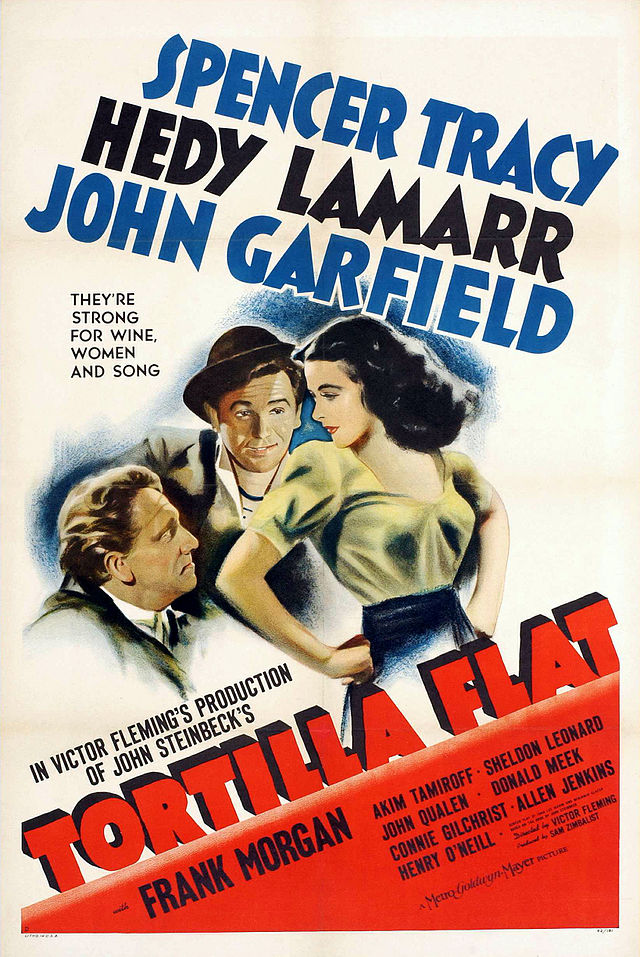Frank Morgan
back| Full Name | Francis Phillip Wuppermann |
| Stage Name | Frank Morgan |
| Born | June 1, 1890 |
| Birthplace | New York City, New York, USA |
| Died | September 18, 1949 |
| Buried | Green-Wood Cemetery, Brooklyn, New York, USA |
| Married to | Alma Muller (m. 1914 until his death in 1949) |
| Children | George Wuppermann |
| Notable films | The Wizard of Oz (1939) - The Great Ziegfeld (1936) - The Shop Around the Corner (1940) - The Mortal Storm (1940) - Tortilla Flat (1942) |
Frank Morgan
Hollywood’s Gentleman of Character
Frank Morgan was a character actor who rose to prominence in the 1930s and 1940s. Born into a wealthy New York family, Morgan began his career in theater before transitioning to film. Known for his warm, often befuddled on-screen persona, he gained fame in both comedic and dramatic roles. His most iconic role was as the Wizard in The Wizard of Oz, where he showcased his versatility by playing five different characters.
Over his career, Morgan appeared in more than 100 films. Although he was initially typecast in comedic parts, he displayed impressive range, earning an Academy Award nomination for The Affairs of Cellini (1934) and acclaim for dramatic roles in The Mortal Storm and The Human Comedy.
Related
Frank Morgan (1890 – 1949)
Biography and Movie Career
Frank Morgan, born Francis Phillip Wuppermann on June 1, 1890, in New York City, came from a large, affluent family of eleven children. His parents, George Diogracia Wuppermann and Josephine Wright, were of German and Spanish descent, and they owned a successful business importing and selling spirits, making the Wuppermanns quite wealthy. Morgan grew up in New York, surrounded by privilege and opportunity, and was initially expected to join the family business. However, his passion for performance would ultimately guide his career in a very different direction.
Early Years and Path Toward Success
Morgan's foray into the arts was initially influenced by his older brother, Ralph Morgan, who had already embarked on a successful acting career. Inspired by Ralph, Frank attended Cornell University, where he became involved in theater. Though he initially considered following in his brother's footsteps, it took some time for Frank to find his true calling. After university, he began acting on stage in New York, where he honed his craft and began to develop the unique blend of warmth, humor, and pathos that would later define his career.
Frank Morgan’s stage work eventually caught the attention of Hollywood producers, and he made his film debut in silent films during the 1910s. Though he started with smaller roles, his affable screen presence and ability to portray a wide range of emotions helped him stand out. He transitioned easily into "talkies" in the late 1920s, and his popularity grew steadily throughout the 1930s. His distinct voice, expressive face, and versatile acting style helped him take on both comedic and dramatic roles, making him one of MGM’s most valuable character actors.
Morgan's success peaked with The Wizard of Oz (1939), in which he played multiple characters, including the title role of the Wizard, as well as Professor Marvel, the Cabbie, the Guard, and the Doorman. Each character brought out a different aspect of Morgan's talent, and his performance became iconic. The role made him a household name, and he is still widely remembered and celebrated for it.
Personal Life and Marriage
Frank Morgan married Alma Muller in 1914, a union that would last until his death. The couple had one child, a son named George. Although Morgan lived amidst the glamor of Hollywood, he was known for his down-to-earth personality and close family ties. Alma and Frank shared a long, supportive marriage, with Alma reportedly accepting of Frank's few eccentricities, such as his penchant for cigars and his superstitious nature. Despite the fame, Morgan remained devoted to his family, and his marriage to Alma was considered one of Hollywood’s most enduring at the time.
Outside of acting, Morgan was an avid lover of cigars, often seen smoking them both on and off set. He was also known for his love of the sea and boating, which offered him a peaceful retreat from his hectic Hollywood schedule. Though his wealth afforded him a comfortable lifestyle, Morgan lived simply, focusing more on his craft and family than on material excess.
Later Career and Health Struggles
Throughout the 1940s, Morgan continued to work steadily in films, with notable roles in The Shop Around the Corner (1940), The Mortal Storm (1940), and Green Dolphin Street (1947). His roles were often marked by a sense of warmth and relatability, and he became known for portraying slightly eccentric but lovable characters. Morgan's performance in The Affairs of Cellini (1934) had even earned him an Academy Award nomination, solidifying his reputation as a versatile and accomplished actor.
However, Morgan’s later years were marred by health issues, many of which were attributed to his lifelong smoking habit. He continued working despite the growing toll on his health, as acting remained his passion and life’s purpose. By the late 1940s, his health had deteriorated significantly, but he remained committed to his craft.
Death and Legacy
In September 1949, while filming Annie Get Your Gun, Frank Morgan suffered a fatal heart attack. He was replaced in the role by Louis Calhern, and the industry mourned the sudden loss of a beloved character actor. Morgan was 59 years old at the time of his death.
Frank Morgan was laid to rest in Green-Wood Cemetery in Brooklyn, New York. His passing left a void in Hollywood, as he was remembered not only for his performances but also for his warmth, professionalism, and kind demeanor. His legacy has endured, with The Wizard of Oz securing his place in cinematic history.
Morgan's ability to play a range of roles—from bumbling and humorous to heartfelt and sincere—continues to resonate with audiences.
Video on Frank Morgan
Analysis of Frank Morgan’s Acting Style
Frank Morgan’s acting style was a distinctive blend of warmth, wit, and vulnerability, which allowed him to excel in a variety of roles, from comedic characters to dramatic and complex personalities. Known for his charmingly befuddled on-screen persona, Morgan possessed an extraordinary ability to convey both humor and pathos, often within the same scene. This versatility made him an invaluable character actor, capable of breathing life into each role with subtle nuances and a relatable, everyman quality.
At the core of Morgan’s style was his knack for creating depth within seemingly light-hearted or humorous roles. His characters were rarely one-dimensional; even when playing bumbling or eccentric figures, Morgan would infuse them with a sense of sincerity and humanity. He was a master at portraying flawed yet endearing characters, often imbuing them with a slight hesitation in speech or expressive mannerisms that hinted at deeper insecurities or inner conflicts. This approach allowed audiences to see themselves in his characters, making them empathetic and relatable, whether he was playing a well-intentioned but confused professor or an indulgent, well-meaning father.
One of Morgan’s trademarks was his vocal delivery. He had a distinctive, almost musical quality to his voice, which he used with great effect, modulating it to capture the nuances of each character. His tone could shift easily between comic bluster and gentle sincerity, creating a rhythmic quality in his dialogue that was particularly effective in his comedic roles. In The Wizard of Oz, for instance, Morgan’s rapid-fire exchanges as the Wizard, the Doorman, and other characters highlighted his gift for timing and comedic rhythm. He would often punctuate his lines with a slight pause or a raised eyebrow, adding a humorous undertone that made his delivery feel natural and spontaneous.
Morgan’s expressive face was another key element of his acting style. His warm, somewhat world-weary eyes, coupled with his open, amiable features, allowed him to convey a wide range of emotions with minimal effort. Even a slight shift in expression could communicate everything from disappointment to joy. This subtlety was particularly evident in his more dramatic roles, where he could effectively portray vulnerability or quiet resolve. In The Mortal Storm, for instance, Morgan played a gentle, principled professor who finds himself at odds with the Nazi regime. Here, his subtle, restrained performance added gravitas and depth, showcasing his ability to move beyond comedic roles and tackle serious, heartfelt characters.
Morgan’s physicality on screen was unassuming yet precise. He wasn’t known for exaggerated gestures or flamboyant movements; rather, he used small, deliberate gestures that felt authentic to his characters. Whether fidgeting with a cigar or adjusting his glasses, his movements felt natural, underscoring his characters' quirks and insecurities. This understated physical style allowed him to play a range of characters who were often comically flustered or gently exasperated without resorting to slapstick or over-the-top antics.
Perhaps Morgan’s greatest strength lay in his ability to connect with his audience on an emotional level. There was a sincerity in his performances that made viewers feel as though he genuinely cared about the people around him, a quality that helped him stand out even in ensemble casts. He was particularly effective in portraying characters who were slightly out of their depth, men who struggled but ultimately had good hearts and noble intentions. This vulnerability gave his characters a lovable, almost paternal quality, endearing him to audiences and making his roles memorable long after the credits rolled.
In summary, Frank Morgan’s acting style was defined by his expressive vocal delivery, nuanced facial expressions, and naturalistic physicality. His characters often exhibited a blend of humor and humanity, creating roles that were charming, heartfelt, and relatable. He brought warmth and authenticity to each performance, whether he was portraying a grandiose Wizard, a bumbling professor, or a caring father, making him a beloved and enduring figure in classic Hollywood cinema.
Memorable Quotes from Frank Morgan
Frank Morgan was known for his witty, often self-deprecating sense of humor and his ability to deliver lines with charm and sincerity. While he didn't leave behind an extensive collection of personal quotes, a few memorable lines from his roles and interviews offer a glimpse into his personality and acting philosophy.
Quotes from Frank Morgan in The Wizard of Oz (1939)
As the Wizard:
"Do not arouse the wrath of the great and powerful Oz! I said come back tomorrow!"
"Pay no attention to that man behind the curtain!" – This line became iconic, symbolizing the idea of illusion versus reality.
"You, my friend, are a victim of disorganized thinking. You are under the unfortunate impression that just because you run away, you have no courage."
As Professor Marvel:
"A heart is not judged by how much you love; but by how much you are loved by others." – This is one of the film’s most touching lines and is often cited as a memorable takeaway from the story.
Quotes Reflecting His Personality and Career
On his acting and choice of roles:
“I'm the fellow who can show up anywhere, anytime, as anybody, and make it believable. That's what being a character actor is all about."
This quote reflects his pride in being a character actor and his belief in the versatility required to excel in such roles.
On fame and acting:
“If I wanted to be remembered, I’d have played heroes.”
Known for his humility, Morgan recognized the lesser fame associated with character actors compared to leading men, though his legacy ultimately proved otherwise.
Regarding his role as the Wizard:
“The Wizard is just a fraud, just like the rest of us."
Here, Morgan humorously reflects on the Wizard’s impostor nature, perhaps with a hint of self-awareness about the illusions actors create on screen.
Lighthearted Anecdotes and Quotes
On his appearance and typical roles:
“I look like the guy who could sell you life insurance or run the neighborhood pharmacy.”
Morgan once joked about his everyman appearance, which allowed him to blend seamlessly into a variety of roles, often as shopkeepers, professors, and friendly authority figures.
On his love of cigars:
“A good cigar is like a loyal friend. You can always count on it when you need to relax.”
Known for his fondness for cigars, Morgan reportedly found comfort in them, both on and off screen.
Awards and Recognition
Academy Awards
• 1934 – The Affairs of Cellini
Frank Morgan received his first and only Academy Award nomination for Best Actor in a Supporting Role for his performance as Duke Alessandro in The Affairs of Cellini. His portrayal of the comically gullible Duke garnered critical acclaim for its mix of humor and charm, showcasing his talent for character-driven roles. Although he did not win, this nomination solidified his reputation as a skilled and versatile actor.
Legacy and Recognition
• The Wizard of Oz (1939) – Although Frank Morgan did not receive any formal awards for his work in The Wizard of Oz, his performance became iconic. Playing five roles—including the Wizard, Professor Marvel, and the Emerald City Doorman—Morgan’s work in the film has since been widely recognized and celebrated as one of Hollywood’s most memorable performances. His multiple roles in the film continue to be praised as a testament to his range and versatility, contributing to the film’s enduring popularity.
Hollywood Walk of Fame
• 1960 – Posthumously honored with a star on the Hollywood Walk of Fame
Frank Morgan received a star on the Hollywood Walk of Fame in recognition of his contributions to the film industry. Located at 1708 Vine Street, his star commemorates his legacy in Hollywood and serves as a tribute to his lasting influence on cinema.
Cultural Legacy and Posthumous Recognition
• American Film Institute (AFI) Rankings
The American Film Institute (AFI) has consistently recognized The Wizard of Oz as one of the greatest American films, placing it high on several of its "Top 100" lists. Morgan’s performance as the Wizard and his multiple other roles in the film are often highlighted in discussions about the film’s cultural impact, and his portrayal of the Wizard has become an indelible part of American film history.
• Classic Hollywood and Fan Recognition
Over the years, Morgan’s work, particularly in The Wizard of Oz and The Shop Around the Corner, has earned him a devoted fan base. Fans and film historians continue to celebrate his versatility, charm, and ability to portray endearing, multi-layered characters. His legacy is frequently honored in retrospectives, documentaries, and film festivals focusing on classic Hollywood cinema.
Unofficial Recognition
While Morgan’s career spanned numerous popular films and won him a place in audiences' hearts, formal recognition in the form of industry awards was limited during his lifetime. However, his enduring popularity, particularly as the Wizard, reflects the high regard in which he is held by fans and critics alike. His performances are regularly cited as exemplary of Hollywood’s Golden Age, and he remains a beloved figure in American cinema.
Notable Movies featuring Frank Morgan
1932
• The Half-Naked Truth - A comedy about a carnival barker who promotes his girlfriend as a sensation to fool the press and the public. Morgan plays a theatrical manager drawn into the scheme.
• The Gay Bride - A crime-comedy where a gangster falls in love with a showgirl, with Morgan playing the financier who gets tangled in the affair.
1933
• When Ladies Meet - A romantic drama where Morgan plays a publisher in love with his star novelist, who’s embroiled in a love triangle involving her married lover’s wife.
• The Nuisance - In this comedy, Morgan plays a crooked doctor teaming up with a shifty lawyer to win personal injury lawsuits.
1934
• The Affairs of Cellini - Morgan received an Academy Award nomination for his role as Duke Alessandro, a comical, easily manipulated ruler in a story about love and deception in Renaissance Italy.
• By Your Leave - A domestic comedy where Morgan’s character and his wife embark on a scheme to refresh their marriage by allowing each other to flirt with others.
1935
• Naughty Marietta - A romantic musical where Morgan plays the comedic role of a bumbling French governor. The film follows a runaway princess who falls for a charming adventurer.
• The Perfect Gentleman - A comedy-drama where Morgan stars as a gentleman with financial troubles who takes an unusual job as a butler.
1936
• The Great Ziegfeld - Morgan shines as Jack Billings, a close friend of the famous showman Flo Ziegfeld. The biographical musical follows Ziegfeld’s rise in the entertainment industry.
• Dimples - Starring alongside Shirley Temple, Morgan plays a lovable conman who exploits his talented granddaughter to make ends meet.
1937
• Saratoga - In this romantic comedy set at the Saratoga racetrack, Morgan plays a wealthy but comical horse owner whose antics add charm to the storyline.
• Beg, Borrow or Steal - A comedy where Morgan plays a down-on-his-luck American in Paris who concocts a scheme to marry off his daughter to solve his financial troubles.
1938
• Port of Seven Seas - A drama about the love life of a fisherman, with Morgan as the father figure offering support and comic relief.
• Paradise for Three - A romantic comedy where Morgan is a businessman undercover in a mountain resort, embroiled in a series of humorous misunderstandings.
1939
• The Wizard of Oz - Morgan plays the iconic roles of the Wizard, Professor Marvel, the Doorman, the Guard, and the Cabbie. The fantasy classic follows Dorothy’s journey through Oz, where each of Morgan’s characters helps or hinders her along the way.
• The Adventures of Huckleberry Finn - Morgan stars as the comically villainous "The King" in this adaptation of Mark Twain’s beloved novel.
1940
• The Shop Around the Corner - Morgan plays Mr. Matuschek, the grumpy but soft-hearted owner of a small shop in this romantic comedy about two bickering employees who are unknowingly secret pen pals.
• The Mortal Storm - A powerful anti-Nazi drama set in pre-war Germany, where Morgan plays a university professor whose family is torn apart by the Nazi regime.
1941
• The Wild Man of Borneo - A comedy where Morgan portrays a salesman promoting an act featuring a supposed "wild man" from Borneo.
• Honky Tonk - In this Western, Morgan plays Judge Cotton, a shady character involved in a series of scams with a con man in the Wild West.
1942
• Tortilla Flat - An adaptation of John Steinbeck's novel, where Morgan plays Pirate, a gentle man whose devotion to his dogs and simple life is endearing in a community of poor fishermen.
• White Cargo - A romance drama set on a rubber plantation, with Morgan as the bumbling overseer caught in a passionate love triangle.
1943
• The Human Comedy - A poignant World War II drama where Morgan plays the telegraph operator Spangler, who must deliver wartime messages to grieving families.
• A Stranger in Town - A political comedy where Morgan plays a Supreme Court justice who goes undercover to expose corruption in a small town.
1944
• Kismet - Morgan takes on the role of the beggar in this colorful musical set in Baghdad, where he engages in a series of comedic schemes to marry off his daughter to a wealthy suitor.
1945
• Yolanda and the Thief - A musical fantasy where Morgan plays an angel who tries to protect a naïve young woman from a conman in a fantastical South American setting.
• Twice Blessed - A comedy in which Morgan plays the father of twins who switch places to bring their divorced parents back together.
1946
• The Green Years - A drama where Morgan portrays a grandfather guiding his orphaned grandson through life’s challenges in a small Scottish town.
• Courage of Lassie - In this family film, Morgan plays a judge who helps a boy reunite with his beloved dog, Lassie, who has been traumatized by wartime experiences.
1947
• Green Dolphin Street - Morgan plays Dr. Edmund Ozanne in this adventure romance about two sisters in love with the same man, set in colonial New Zealand.
• The Hucksters - In this drama, Morgan plays the head of an advertising agency who must confront the ethical dilemmas of his profession.
1948
• Summer Holiday - A musical adaptation of Eugene O'Neill’s play Ah, Wilderness!, where Morgan plays the lovable, protective patriarch of a family in early 20th-century America.
• Command Decision - Morgan plays a compassionate general in this war drama that examines the heavy moral choices faced by military leaders in WWII.
1949
• The Beautiful Blonde from Bashful Bend - A Western comedy with Betty Grable, where Morgan plays a judge caught in the crossfire of romantic entanglements and gunplay.
Complete Overview of Movies with Frank Morgan
1910s
• The Suspect (1916)
• The Deadlier Sex (1920)
1920s
• The Talker (1925)
• The Nut (1921) – uncredited
• The Silent Witness (1924)
• The Masked Bride (1925)
• So This Is Paris (1926)
• Mademoiselle Modiste (1926)
• Love's Greatest Mistake (1927)
• White Gold (1927)
• Belle of the Ball (1927)
• The Greyhound Limited (1929)
• The Bishop's Candlesticks (1929)
1930s
• The Woman Racket (1930)
• Only Saps Work (1930)
• The Life of the Party (1930)
• The Passionate Plumber (1932)
• Strange Interlude (1932)
• The Half-Naked Truth (1932)
• What Happened to Mary? (1932)
• Fast Life (1932)
• The Billion Dollar Scandal (1933)
• The Nuisance (1933)
• When Ladies Meet (1933)
• Beauty for Sale (1933)
• The Cat and the Fiddle (1934)
• The Affairs of Cellini (1934)
• By Your Leave (1934)
• The Mighty Barnum (1934)
• The Good Fairy (1935)
• Reckless (1935)
• Escapade (1935)
• Calm Yourself (1935)
• Naughty Marietta (1935)
• The Perfect Gentleman (1935)
• His Brother's Wife (1936)
• The Great Ziegfeld (1936)
• Piccadilly Jim (1936)
• Dimples (1936)
• Beg, Borrow or Steal (1937)
• Parnell (1937)
• Saratoga (1937)
• Rosalie (1937)
• Man-Proof (1938)
• Port of Seven Seas (1938)
• Paradise for Three (1938)
• The Crowd Roars (1938)
• The Shopworn Angel (1938)
• The Wizard of Oz (1939)
• Broadway Serenade (1939)
• The Adventures of Huckleberry Finn (1939)
• Henry Goes Arizona (1939)
1940s
• The Shop Around the Corner (1940)
• The Mortal Storm (1940)
• Boom Town (1940)
• Hullabaloo (1940)
• Keeping Company (1940)
• Washington Melodrama (1941)
• The Wild Man of Borneo (1941)
• Honky Tonk (1941)
• The Vanishing Virginian (1942)
• White Cargo (1942)
• Tortilla Flat (1942)
• A Stranger in Town (1943)
• The Human Comedy (1943)
• The Omaha Trail (1943)
• Thousands Cheer (1943)
• Kismet (1944)
• Casanova Brown (1944)
• The White Cliffs of Dover (1944)
• Song of Russia (1944)
• Yolanda and the Thief (1945)
• The Great Morgan (1946)
• Courage of Lassie (1946)
• Lady Luck (1946)
• The Green Years (1946)
• The Three Wise Fools (1946)
• The Hucksters (1947)
• Green Dolphin Street (1947)
• Summer Holiday (1948)
• Command Decision (1948)
• The Stratton Story (1949)
• The Beautiful Blonde from Bashful Bend (1949)

